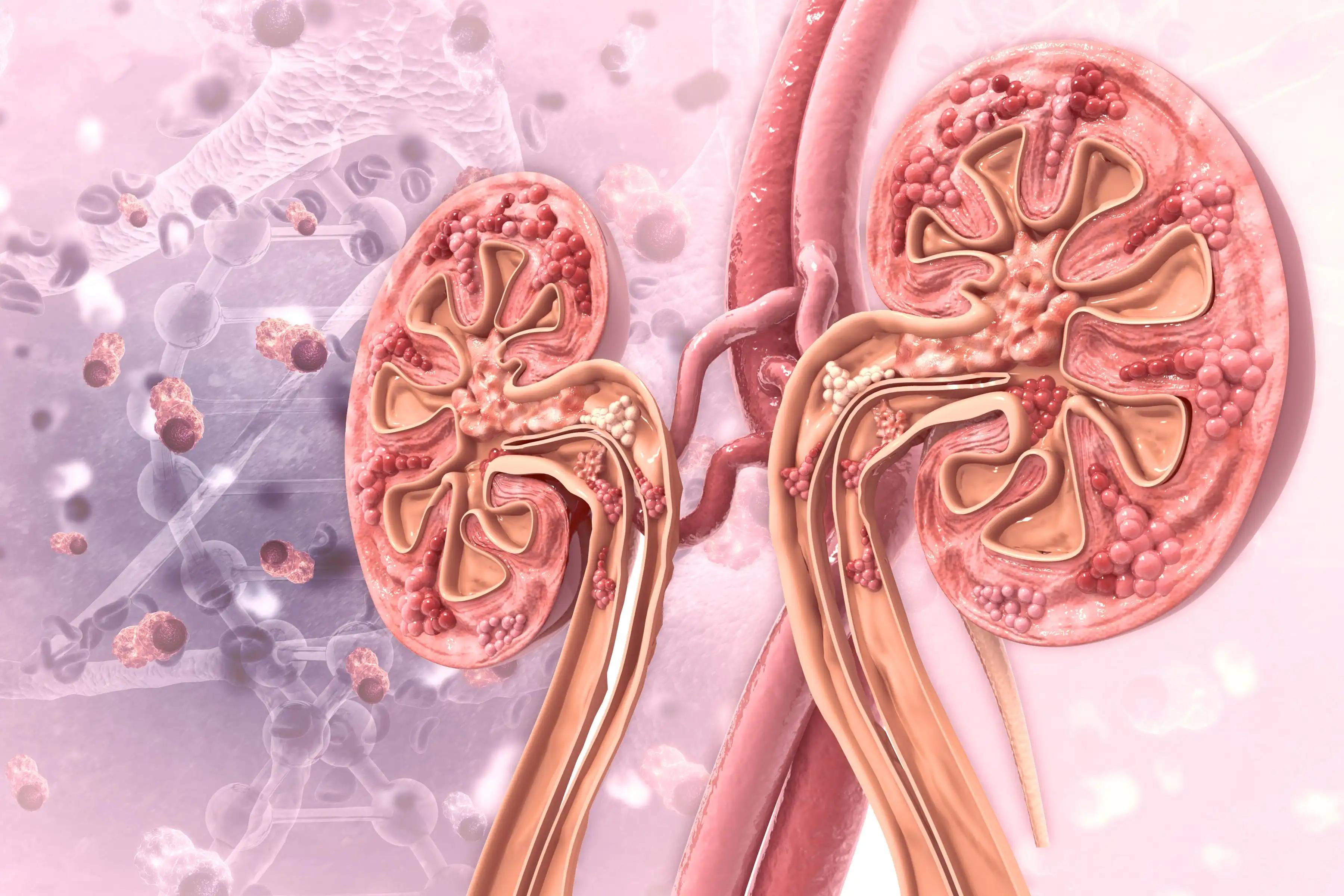KEY TAKEAWAYS
- The phase 1 trial aimed to investigate the safety and clinical efficacy of concurrent fianlimab and cemiplimab therapy in patients with advanced ccRCC.
- Researchers observed promising clinical activity and durable responses in both anti-PD-(L)1-naïve.
Concurrent blockade of lymphocyte-activation gene 3 (LAG3) may enhance efficacy of anti–programmed cell death-1 (PD-1) therapies.
Miso Kim and the team aimed to present safety and clinical activity data from a Phase 1 study (NCT03005782) in patients with clear cell renal cell carcinoma (ccRCC) treated with anti–LAG-3 (fianlimab) + anti–PD-1 (cemiplimab).
They performed an inclusive analysis of patients with advanced or metastatic ccRCC who met eligibility criteria for a phase 1 study (NCT03005782). Eligible patients, including those anti-PD-(L)1-naïve (cohort 3) or anti-PD-(L)1-experienced (cohort 4), received intravenous fianlimab 1600 mg + cemiplimab 350 mg every 3 weeks for up to 24 months. Tumor responses were evaluated using Response Evaluation Criteria in Solid Tumors (RECIST) version 1.1 every 6 weeks initially, followed by every 9 weeks. The study aimed to assess safety and antitumor activity of this combination therapy in patients with ccRCC.
About 15 patients (median age: 64 years) each were enrolled in cohorts 3 and 4 (total N=30) and treated with fianlimab + cemiplimab as of the November 1, 2022 data cutoff. For cohorts 3 and 4, 80% and 87% of patients were male, and 40% and 87% were White, respectively. All patients had prior cancer-related systemic therapy. In total, 60% and 93% of patients in cohorts 3 and 4 had ≥2 lines of prior therapies, respectively. Median treatment duration was 27 weeks for cohort 3 and 18 weeks for cohort 4, with median follow-up of 13 months and 24 months, respectively. Grade ≥3 treatment-emergent adverse events (TEAEs) occurred in 53% and 33% of patients in cohorts 3 and 4, respectively.
Serious TEAEs occurred in 33% and 13% of patients in cohorts 3 and 4, respectively. Treatment-related adverse events (TRAEs) were reported in 80% of patients in cohort 3 and 60% of patients in cohort 4. The most common TRAEs (any grade) were rash (27%) and infusion-related reaction (Grade 1 and 2; 27%) in cohort 3, and fatigue (20%) in cohort 4. Grade ≥3 TRAEs occurred in 27% of patients in cohort 3; there were no Grade ≥3 TRAEs in cohort 4.
Treatment was discontinued due to any TEAE in 3 patients in cohort 3 and 1 patient in cohort 4. There was 1 death in cohort 3; a 79-year-old woman with a history of antiphospholipid syndrome died from complications of biopsy-proven ischemic colitis, which was attributed to study treatment.
RECIST 1.1-based investigator-assessed objective response rate (ORR) was 20% (3 partial responses [PRs]) in cohort 3 and 7% (1 PR) in cohort 4. The disease control rate was 60% and 73% in cohorts 3 and 4, respectively. Kaplan–Meier estimation of median progression-free survival (PFS) was 4 months (95% CI 1–10) in cohort 3 and 4 months (95% CI 1–7) in cohort 4. Durations of response were 4, 7, and 26 months in 3 responders in cohort 3, and 6 months in 1 responder in cohort 4.
The study concluded that Fianlimab + cemiplimab exhibited promising clinical activity and durable responses in both anti-PD-(L)1-naïve (cohort 3) and anti-PD-(L)1-experienced (cohort 4) patients with an acceptable safety profile.
The trial was sponsored by Regeneron Pharmaceuticals.
Source: https://kcrs.kidneycan.org/wp-content/uploads/2024/06/KCRS24-Abstract-Book-6.27.24.pdf
Clinical Trial: https://clinicaltrials.gov/study/NCT03005782
Kim M, (2024). “A Phase 1 study of fianlimab (anti–LAG-3) in combination with cemiplimab (anti–PD-1) in patients with advanced ccRCC.” Presented at KCRS 2024 (Abstract 7).



